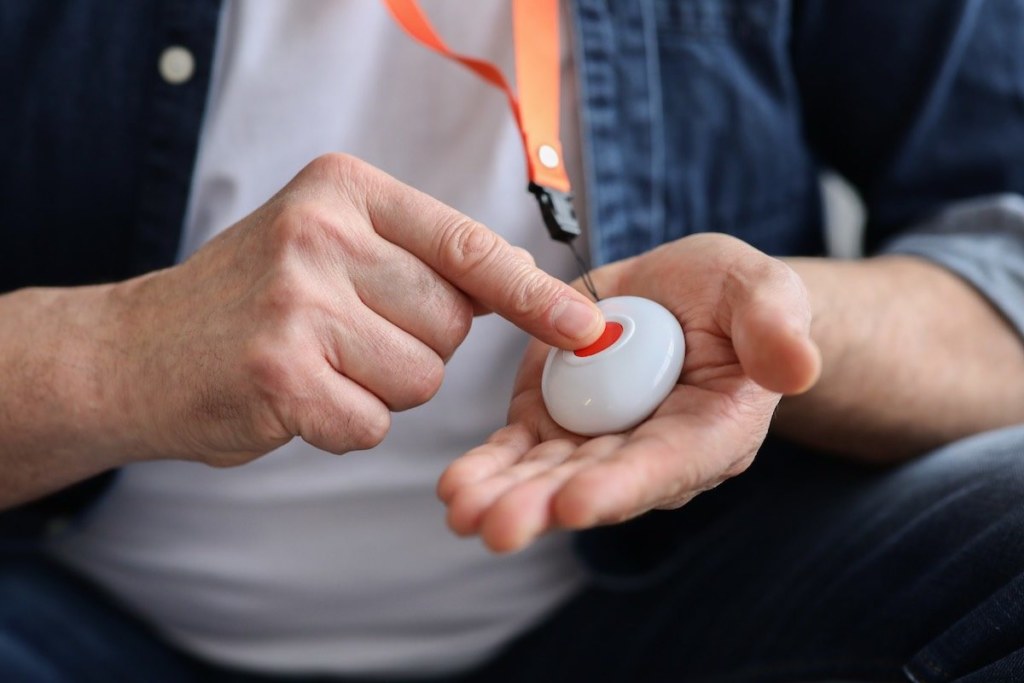
What Is AARP?

Founded in 1958 by Dr. Ethel Percy Andrus, AARP began as an association to help retired teachers access health insurance. Since then, it has evolved into an organization that promotes the well-being of older and retired adults by offering access to products, services, and lifestyle advice that supports members who choose to age in place. AARP also uses funding to lobby for older adult-centric policies and programs, raising public awareness around the needs of the older-adult population. They connect older adults to affordable and safe housing, employment, social networks, and even food assistance.
AARP members enjoy exclusive access to products and services including (but not limited to):
- Health, life, pet, vehicle, and property insurance
- Travel planning, car rentals, and vacation packages
- Restaurant and entertainment discounts
- Financial and retirement planning
- Real estate and moving services
Does AARP Cover Medical Alert Systems?

AARP MAS Discounts
Benefits and discounts offered by AARP for medical alert systems are exclusive to members, so when considering overall cost it’s helpful to take the cost of membership into account. The standard annual rate for AARP membership is quite affordable at $16 per year, and considering the comprehensive list of discounts and promotions offered to members, it’s certainly worth the cost of membership if you plan to use any of the benefits. These discounts are subject to change at any time, so it’s wise to regularly check AARP’s discount listings.
AARP MAS Partnerships
AARP currently has long-running partnerships with only two medical alert companies, Lively and Philips Lifeline, which allows them to extend discounts to members. While AARP medical alert system discounts are limited to just two brands, the brands are two of the most well-known and trusted medical alert companies on the market. If you find that neither Philips Lifeline nor Lively are a good fit for your needs, there are many other medical alert systems available that can possibly fit your budget. Some companies offer discounts to AARP members directly (without going through AARP), and you might even belong to other organizations or qualify for other programs that offer medical alert system discounts.
Medical Alert Systems Covered by AARP

Philips Lifeline
AARP members can save 15% on their monthly subscription to Philips Lifeline. The company also waives the $50 activation fee for AARP members and offers member-exclusive free shipping. Users choose from both mobile and at-home options: the On the Go and the HomeSafe.
The Philips Lifeline in-home systems support independence for customers aging at home, especially those who are frequently alone. These systems operate as a standard pendant the user wears around their neck or wrist. Philips Lifeline’s AutoAlert feature is equipped with automatic fall detection, a technology that senses most falls and connects the wearer to the monitoring center, even when they can’t summon help on their own.
Lively
For AARP members who purchase the Lively Mobile Plus medical alert system, AARP offers a flat $60 discount on the annual fee for the Preferred and Ultimate levels of their Health and Safety Packages. The Mobile Plus system is offered as a clip-on or lanyard emergency button. Both the Preferred and Ultimate subscription packages include services that help older adults to feel safe as they age at home.
The Preferred package includes Urgent Response, Urgent Care, and Lively Link which respectively offer emergency response, access to medical professionals for questions and concerns, and keep loved ones connected and aware of your health and safety status. The Ultimate package includes all of the above plus the addition of fall detection.
Other Budget-Friendly Medical Alert Systems
While AARP’s discounts are limited to just two brands, there are many reputable and budget-friendly medical alert devices on the market. Depending on your individual needs, you may be able to find a system that works best for you and is equally or more affordable than Lively and Philips Lifeline.

